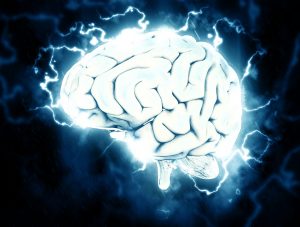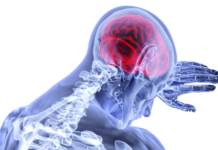As we age, our bodies and brains become less effective. Among age-related mild cognitive impairments, we find a loss of listening skills, focus impairment and the reduction of the information processing speed. According to recent studies, these disorders might be reduced by learning to play an instrument.

Preserving brain performance by learning to play an instrument
A new study provided information attesting that playing an instrument might have an effect on brain abilities. Learning to play an instrument might improve hearing skills and prevent the development of mild cognitive impairments and mental weaknesses which appear throughout aging.
Bernhard Ross, the main author of this study, is a professor of neuroscience at the University of Toronto. His research studies were made at the Rotman Research Institute, an institute specialized in the improvement of brain function during normal aging.

The beneficial effects of learning to play an instrument on brain abilities
This study was carried out on 32 healthy adults with a normal hearing skills and no previous neurological nor psychiatric history.
Their brainwaves were first measured as they could hear the sound of a Tibetan bell. After hearing these instruments, half of the participants tried to reproduce the sound at the same rhythm with the instrument. The other half also tried to reproduce the same sound, but this time with a computer keypad.

For the group that learnt to use this new instrument, there was an increase of beta oscillations reactivity, which corresponds to the brain’s electrical activity that appears in a period of high activity or concentration. A connection improvement between the auditory cortex and the sensorimotor (matter of both sensorial functions and motor ability) was observed.
The group that reproduced the sound on a computer keypad and did not learn how to play an instrument, however, showed a much lower motor development.

Brain performance rehabilitation through learning to play an instrument
“MUSICAL CREATION INDUCES MAJOR CHANGES IN THE BRAIN ACTIVITY”

C
This B. Ross PhD.’s theory implies that when we play a musical instrument, we mobilize several brain functions such as the auditory system, the motor system or perception mechanisms. Learning to play an instrument might improve a person’s listening and hearing skills over a short period of time. These changes in brain activity demonstrate the brain’s ability to develop continuously. This suggests that the brain would be able to fix, by itself, the dysfunctions in tasks execution caused by brain damage or age-related diseases.
Katidja Allaoui

Author
Auteure
Katidja studied biology and health engineering at the school of engineering of Angers.
More about the Long Long Life team
Katidja a étudié l’ingénierie de la biologie et de la santé à l’école d’ingénieurs de l’université d’Angers.
En savoir plus sur l’équipe de Long Long Life
Odélie Tacita

Translation
Traduction
Odélie is a trainee specialized translator at Elvesys. She is graduating from the university of Paris-Est Marne-la-Vallée and works in French, English and Spanish.
More about the Long Long Life team
Odélie est apprentie traductrice spécialisée pour Elvesys. Elle termine sa formation à l’université de Paris-Est Marne-la-Vallée et ses langues de travail sont le français, l’anglais et l’espagnol.
En savoir plus sur l’équipe de Long Long Life
Références
[1] Ross, B., Barat, M., & Fujioka, T. (2017). Sound-making actions lead to immediate plastic changes of neuromagnetic evoked responses and induced beta-band oscillations during perception. Journal of Neuroscience, 3613-16.
[2] Why Playing Music May Help Ward Off Cognitive Decline of Aging | Psych Central News. [online] Psych Central News. Available at: https://psychcentral.com/news/2017/06/03/why-playing-music-may-help-ward-off-cognitive-decline-of-aging/121427.html



![[Video] Eurosymposium on Healthy Ageing, Brussels, 2018 Eurosymposium on Healthy Aging](http://www.longlonglife.org/wp-content/uploads/2019/07/P1310252-218x150.jpg)










